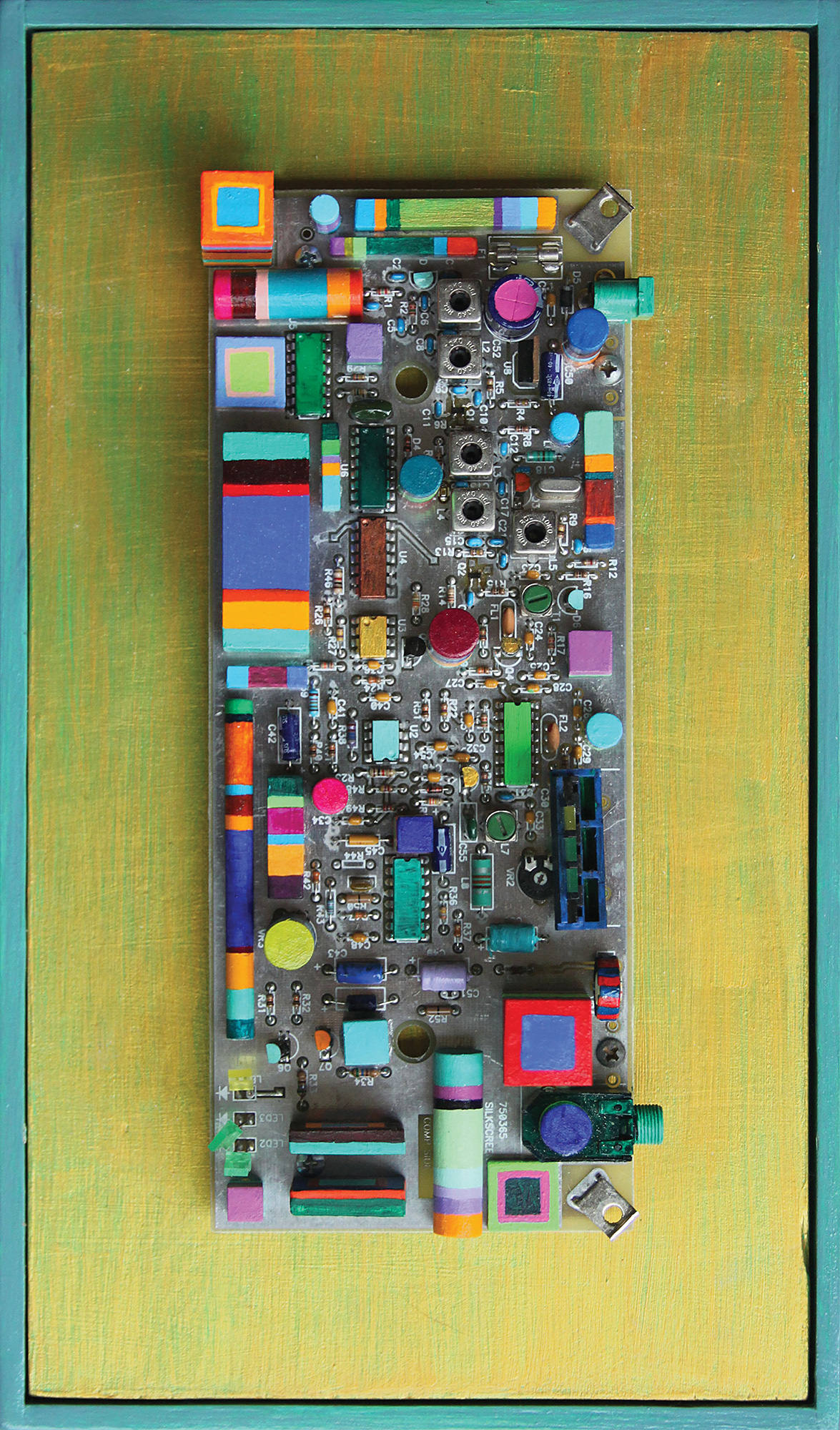Universal Audio has a reasonably broad audio interface offering within the Apollo range, including the Apollo Twin X and Apollo x4 series [Tape Op #136], which have been marketed as the "desktop" alternatives (or supplements) to your UA ecosystem. In 2018, the introduction of the UA Arrow added a Thunderbolt 3 bus-powered portable recording option to the formidable Apollo lineup.
The new Apollo Solo is effectively a rebrand of the Arrow interface with the addition of a Windows-only, externally powered USB-C option (our test unit was the Mac OS Thunderbolt 3 bus-powered version). Having a completely bus-powered, lightweight, and road-worthy Apollo with sample rates up to 192 kHz and no discernable latency is pretty freakin' compelling, especially if you're tracking with UA's LUNA [#138] Recording System. The Solo has two primary inputs on the back with line preamps (via XLR combo jacks), plus a Hi-Z TRS jack on the front. All three inputs are addressable as Unison-enabled inputs, but you may only track two inputs simultaneously. A quick refresher: Unison is UA's proprietary low-latency mic preamp and emulation technology, enabling you to track in real-time through modeled classic preamp and EQ chains. What else is different here from the previous Arrow? Well, the body is silver instead of Twin X "space grey."
Working with the Apollo Solo is primarily an overdub-heavy workflow in my opinion. However, given how terrific this interface sounds, this is not a deal-breaker by any means. Those wishing to track, say, a fully mic'd drum kit and band could conceivably do so, provided your external gear could be bused to two tracks. The analog outputs provided are a single headphone jack on the front panel and a TRS pair for monitor outs on the back.
The top panel layout is clear, straightforward, and will be instantly familiar to any previous UA desktop interface owners. The large center pot is a continuous encoder used to adjust input levels, monitor or headphone gain, and can mute the monitor outs with a push in. The top-panel switches serve as dedicated switches for standard functions such as input type selection, phase flip, stereo pair linking, low-cut filtering, etc. The input levels are represented on the illuminated panel as a five-segment bar graph, which is only truly useful for quick visual confirmation that you aren't clipping – still, nice to have.
The body of the Apollo Solo is solid, molded cast aluminum with a large grip mat surface along the bottom hiding any seams or screws, and there is no venting. I only mention this because the Solo can become warm to the touch when the internal DSP is in use for lengthy sessions. Not dangerously so, of course, but it's worth noting that the body of the Apollo Solo itself acts as a heat sink and that the single SHARC-based DSP chip inside can generate a fair amount of heat if taxed by processor-intensive instantiations.
Imagine some distant future in which it's safe to travel via train or plane again. In that seemingly impossible world to come, I can easily see myself mixing, or maybe even overdubbing in LUNA while on the go – that's where Apollo Solo strikes me a perfect "grab-n-go" mobile interface. Although the single DSP quickly reaches it's processing ceiling (especially at higher sample rates), having a bus-powered UA box about the size of a small hardbound book makes for easy and quick trips to capture a backing vocal or guitar overdub at a friend's house. In a way, having these types of purposeful restrictions can make for interesting choices, particularly when tracking, as it pushes you to commit to sounds (more accurately, working with limited DSP forces you to optimize for Unison + UAD recording effects on your inputs). I would love to see a similar UA Solo-styled portable interface with dual-, quad- or hexa-DSP configurations available to free myself of these constraints when mixing. The 15 watts of bus power provided by Thunderbolt 3 likely makes that impossible to architect – internal LiOn battery, maybe? Battery-powered UAD Satellite? One can dream.
The Apollo Solo is a super-affordable entry point into the world of UAD, either bus-powered or not. Now that it comes with the free, fully integrated LUNA DAW (for MacOS only), in addition to the Realtime Analog Classics plug-in bundle, it's an undeniably attractive offering for someone looking for any new desktop-style interface.




_disp_horizontal_bw.jpg)